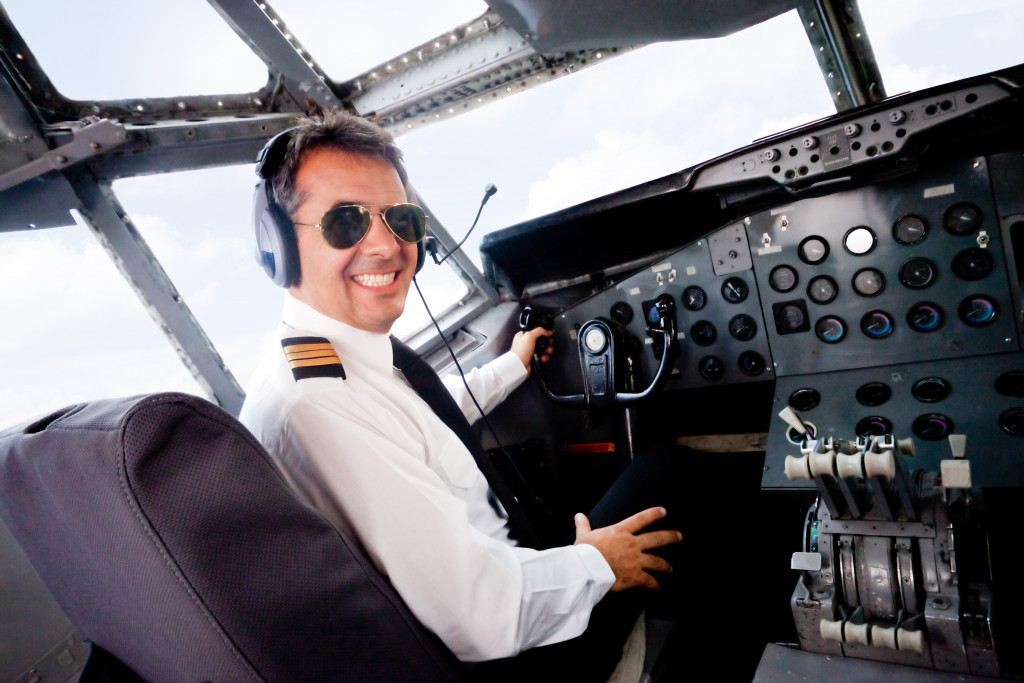- Becoming a pilot involves more than just technical knowledge; it also requires decision-making, communication, and problem-solving skills.
- Practical training via flight simulators, effective communication skills, stress management techniques, and gaining practical experience are paramount for success in aviation.
- Physical fitness is crucial in the pilot profession to withstand the demanding nature of the job and ensure alertness and quick reactions during flights.
- Becoming a pilot is challenging, but it is achievable with determination, the right guidance, and prioritizing each of these facets.
Embarking on the journey to become a pilot necessitates the development of a unique blend of skills. This entails mastering the technical knowledge of flight operations and honing critical soft skills, such as decision-making, communication, and problem-solving. This multifaceted approach ensures a comprehensive skill set that prepares them for the diverse challenges faced in the cockpit.
Enroll in a reputable pilot school
Enrolling in a reputable pilot school is a crucial step in pursuing a career as a pilot. Choosing a school with a proven track record for providing quality pilot education and training is important. Prospective students should research the school’s accreditation, curricula, and certification requirements before deciding.
Additionally, it is prudent to consider the school’s location, cost, and facilities. With the right school, aspiring pilots can develop the knowledge, attitude, and discipline necessary to achieve their goals and succeed in the challenging aviation field.
Constant learning
Learning constantly is essential for pilots, as the aviation industry is ever-evolving and new technologies are continually being developed. To stay ahead of the curve, commitment to perpetual learning is required. Here are some of the necessary things you need to do:
Practice with flight simulators
Flight simulators offer an exceptional opportunity for aspiring pilots to practice the skills needed to become successful in their career. These simulators are designed to mimic real-life scenarios in the aviation industry, from takeoff and landing to various emergencies. Pilots can sharpen their decision-making skills and strengthen their understanding of flying planes by training on these simulators.
Additionally, flight simulators are much safer and more cost-effective than practicing in a plane, making them a top choice for pilots to hone their skills. This training can be the difference between a flight that ends safely and one that ends in tragedy. Overall, utilizing flight simulators is a vital step in an aspiring pilot’s career path.
Develop communication skills
Developing communication skills is an essential aspect of becoming a pilot. Proper communication ensures the pilot can convey important information to their crew, air traffic control and other stakeholders. A pilot needs to speak confidently and clearly and listen actively to others.
Communication is critical to the safe operation of aircraft, and proper communication allows pilots to work as a team, especially in high-pressure situations. Developing effective communication skills takes time, but is a vital aspect of being a successful pilot.
Learn stress management

Stress management is an essential skill for anyone aspiring to become a pilot. It involves learning how to cope with the pressures and demands of flying aircraft, which can be physically and mentally challenging. Proper stress management techniques enable pilots to remain calm and focused in high-stress situations, ensuring they can make quick, informed decisions that keep themselves and their passengers safe.
Developing these skills is crucial as it helps prevent job-related stress from taking a toll on a pilot’s mental health and well-being. Stress management is critical to any aspiring pilot’s training, helping them develop the emotional resilience and mental toughness required to excel in their profession.
Gain experience
Gaining experience is a crucial step in becoming a successful pilot. Experience refers to the hours and flights a pilot accumulates as they move closer to their goal. How does one gain enough experience to develop the necessary skills to become a pilot? Engaging in flying opportunities is the best way to go about it.
Whether working at a local airport, joining a flying club, or enrolling in a flight program at a reputable institution, making the most of training opportunities is the surest way to attain the necessary experience. Making wise decisions on equipment and flying conditions can contribute to positive experience-gaining results. With this in mind, aspiring pilots should strive to gain as much experience as possible to garner greater confidence and expertise in the field.
Enhance physical fitness

Physical fitness is an essential aspect of becoming a pilot. It enables individuals to withstand the rigors of the demanding profession. Undertaking regular exercises such as cardio, strength training, and flexibility exercises are just a few ways to enhance physical fitness.
Making fitness a priority boosts energy levels and helps develop strong muscles, flexibility, and aerobic endurance. This ensures that pilots are sharp, alert, and focused during flights, making it less likely to miss crucial information and react quickly to unexpected situations.
Proper physical fitness also minimizes the likelihood of injuries and illnesses, which can harm passengers’ safety and wellbeing. For these reasons and many more, it is imperative for individuals who aspire to become pilots to take physical fitness seriously.
Therefore, individuals aspiring to this profession must prioritize each of these facets and leave no stone unturned in their pursuit towards excellence. They are encouraged to seek out reputable institutions and seize every opportunity to cultivate their skills. The path to the cockpit is challenging but with determination and the right guidance, it is certainly achievable.

